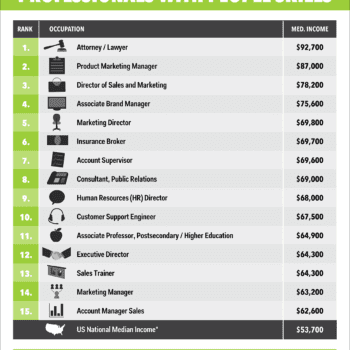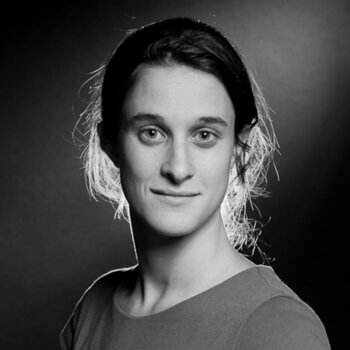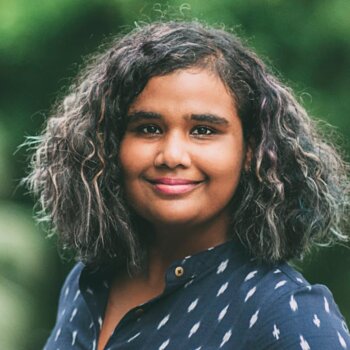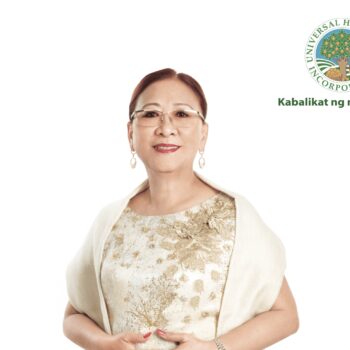Magdalene Loh is flying on the education revolution with her business venture Flying Cape. Flying Cape is focused on enriching education through technology to provide a mass customising, learner centric model.
What’s your story?
I am a lawyer by training and have worked in a global financial institution in both Singapore and Hong Kong. In August 2015, I started working on an edtech company Flying Cape with a classmate from my Tsinghua-INSEAD EMBA class, Jamie. At that time, the Singapore education system was in the press a lot, mainly for negative reasons as Singaporeans questioned if it could be made less stressful. Jamie and I realised that perhaps we could make a difference by pulling together the insights of educators / bosses and the power of technology. So we began an exciting journey of speaking to many people smarter than ourselves and building their insights. Flying Cape’s booking website for tuition and enrichment classes is up already and our smart recommendations engine is due out in Q4 2016.
What excites you most about your industry?
Education has a special place in the hearts of many Singaporeans, both for the fond formative memories of our schooling days and it takes centrestage in the national debate to grow our nation. Do we try to be world-class and ace all known tests and, or exams or should we try to develop our children a little more holistically? Is there a sweet spot where a less stressful, mass customisation education yields good academic results and great real world success?
Our Ministry of Education is trying its best to tell parents that it is not so much about grades or brand-name schools and that ‘every school is a good school.’ Many parents today know the old rule that ‘a good education gives you a good life’, no longer holds true across the board. But because they can’t see a clear alternative path forward, they either continue to desperately hothouse their children with more tuition and enrichment classes, or they opt out of the school system entirely. Only the most enlightened parents understand that the best way forward is to put the learner solidly back in the driving seat of education and even then they struggle to sift through the raft of classes to find the most suitable ones for their children.
The education industry today is so exciting because the raw technology for mass customising a learner-centric education already exists and applying it correctly can resolve real world pain points. If we succeed, this will impact the way the next generation of children (and their parents) understand education and success.
What’s your connection to Asia?
I’m a Singaporean. I’ve worked in Hong Kong for 5.5 years, in a regional role that required (allowed) me to travel around Asia. I really enjoyed the interaction with the local teams and working with them in their cultural context. In June 2016, I relocated back to Singapore to focus on my edtech start-up, Flying Cape.
Favourite city in Asia for business and why?
I really like the energy and can-do spirit in Hong Kong. In the pre-Uber days, it was not uncommon to see taxi drivers have up to 5 hand phones on their dashboard, with each phone serving as a private communication network to receive taxi bookings. As a Singaporean, used to the government or government-linked companies taking the lead, it was an eye-opener to see how private enterprise organised itself dynamically and ingeniously.
I worked in a regional head office where there were 17 different nationalities represented and each person brought a unique skill set and international perspective. People asked “why not?” and pushed boundaries. I was given incredible opportunities to grow in my career: leading on very interesting, cross-border transactions and corporate restructuring as a regional legal counsel. I transitioned into a government relations role where I worked with my boss, a really wise British diplomat, to set up and train the function across Asia Pacific. I hope to apply what I’ve learnt here in Singapore, in my start-up.
What’s the best piece of advice you ever received?
“I am not in competition with anybody to be the best version of myself.” That really empowered me to seek out my own path in life and to celebrate the successes of the people around me.
Who inspires you?
My parents. They are very ordinary people. Dad worked in his father’s textile shop most of his life and my mum is a nurse. I’ve learnt from them the value of hard work, compassion and family. They keep me grounded and I am always secure in the knowledge that whatever happens out in the rough and tumble of the working world, they will always be there.
In part, what I’m doing now in the education space is inspired by them. My parents always gave me the best they could afford, but from secondary school onwards, they didn’t really know how to guide me in navigating the world of education and work. I want to be able to put in the hands of parents like them – honest, well-meaning folks – easy-to-use tools to understand their children’s strengths and then also give practical recommendations that will help their children get the best education possible, at an affordable cost.
What have you just learnt recently that blew you away?
65% of jobs that a pre-schooler will graduate from, do not yet exist. This makes “learning to learn” much more important than mastering specific exam-focused contents.
If you had your time again, what would you do differently?
I would have stressed less about doing badly for my chemistry and physics exams (never used any of that anyway) and focused more on presentation skills earlier. The ROI would have been way higher!
I wasn’t a particularly confident person when I first started work and always thought that I didn’t know enough. Then I realised that nobody knows everything necessary for their jobs at first anyway. In a nutshell, I would have applied Sheryl Sandberg’s “Lean In” principles much earlier – my career was so much more fulfilling and fun when I did!
How do you unwind?
Mostly by reading. When I am really stressed, I play Guitar Hero on my Xbox.
Favourite Asian destination for relaxation? Why?
Vietnam – for the food, rich history and the nice heritage hotels. I first toured Ho Chi Minh and the Mekong Delta in 2007 and have since gone back many times, to different places. Central Vietnam, especially Hue is a great place to explore in the day and chill out by night.
Just this month, I was in Hanoi. It was great seeing Vietnam through the eyes of the locals. Memorably, a 25 year old lady articulated in a perfect American accented English how her family came from using oil lamps when she was a child, to their current comfortable life and her hopes for the future. Basically, the fortunes of her family rose with economic development in Vietnam as a whole. It’s always fascinating to hear Asian growth stories.
Everyone in business should read this book:
From Good to Great by Jim Collins. There are so many classic management concepts in here: getting the right people on the bus in the right seats, the Big Hairy Audacious Goal, practicing productive paranoia, making a to-do list with no more than 3 priorities, for example. Always worth a refresher read.
Shameless plug for your business:
Flying Cape is a marketplace for parents to find suitable tuition and enrichment classes for their children aged 18 months to 18 years old. At the core of what we do is the belief that each young learner has unique interests, talents and learning styles. By the end of 2016, Flying Cape will have rolled out our smart recommendations engine and Holistic Scorecard to help parents better understand how to help their children navigate their complex, unknown and exciting future. So register now at www.flyingcape.com.sg to check out classes from more than 120 education providers and pre-book your free Holistic Scorecard.
How can people connect with you?
[email protected]
Twitter handle?
@magdalene_loh
—
This interview was part of the Callum Connect’s column found on The Asian Entrepreneur:

Take the ‘Key Person of Influence’ scorecard <http://www.keypersonofinfluence.com/scorecard/>
Connect with Callum here:
twitter.com/laingcallum
linkedin.com/in/callumlaing
Get his free ‘Asia Snapshot’ report from www.callumlaing.com






























